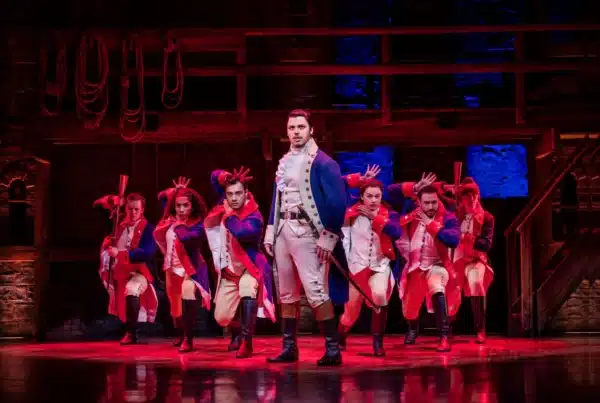Do I Need a Music License for My Events?
The answer is, yes. It’s the law, and it’s the right thing to do. We all expect to get paid for our work, whether we’re a planner, caterer, AV supplier or in hotel sales. The same goes for the people who create the music that we use to make our events more successful.
‘But I’ve already paid for the music!’ I hear you say. You may have bought a song on a CD, mp3 or via a streaming service like Spotify, however that only covers private use. It doesn’t cover the ‘public performance’ of the music at your event.
As most of us don’t have Beyonce’s contact details, how do we pay the songwriters?
Performing Rights Organizations
The good news is that there are ‘Performing Rights Organizations’ (PRO’s) that collect royalties on behalf of the songwriters so that you don’t have to research every song you play at your welcome reception and gala dinner. Their solution is a blanket license from your country’s major PROs, allowing you to play pretty much any song ever written with minimal administration on your end.
There are three in the USA (BMI, ASCAP and SESAC), SOCAN in Canada, PRS in the UK, APRA in Australia, and the list goes on. See more detail on the easiest way to obtain blanket licenses below.
Who’s Responsible For The License?
The owner of the event is responsible for having the appropriate music licenses in place. So if it’s a Microsoft event, then Microsoft is responsible, not a third party planner, production company or AV supplier. However third parties can obtain licenses on the event owner’s behalf.
What about venues? Venues are required to have music licenses for their own usage, e.g. elevator music, background lobby music and lounge performers. However, with the exception of SESAC in the USA, these licenses do not cover private events. So you’re still going to need an ASCAP and BMI license.
Which PRO should I get a license from?
This only applies to those holding events in the USA, as other countries only have one PRO. If your event requires very limited music, say for example you just need a few songs to play keynote speakers on and off the stage, then you could make sure all the songs were from the BMI repertoire (which is a searchable database on all the PRO’s websites), and you’d only need to get the BMI license. But if you’ve got a welcome reception, a gala dinner, or general background music, then restricting the songs played by your DJs, band or AV team to one PRO is going to be very difficult and not worth the effort. Most hit songs you hear on the radio today are written by two or more songwriters, and chances are one of them is signed to ASCAP, the other to BMI. The most efficient and cost effective solution? Make sure all three licenses are in place, and you can play any song you want.
How Much Do They Cost?
The Performing Rights Organizations realize that music usage varies from industry to industry, so they have different licenses for categories including ‘General Business Use’ and ‘Meetings, Conventions, Trade Shows & Exhibits’. Rates are federally regulated for ASCAP and BMI (SESAC’s rates are not as it is a for-profit organization).
Internal Events:
If your events are for company employees only, whether on your premises or not, they can be covered by the annual business blanket license that BMI calls their “Business Multiple Use” license, and ASCAP and SESAC call their “Music In Business” license.
As a rough guide, annual costs for a company of 5,000 employees is around $2,500. This covers a lot, including your big annual sales kick-off! Here’s what the BMI license covers:
- Live or recorded performances by bands or DJs at offsite or onsite company functions;
- Company Training;
- Audiovisual presentations;
- Company fitness facilities;
- Interactive software such as CD-ROM;
- Teleconferencing at company locations;
- Music-On-Hold;
- Radios, tapes and CDs used to enhance company image and motivate, and increase employee productivity.
Just to make things more complicated…the SESAC ‘Music In Business’ license is different from the others in that it also covers “social acquaintances or intra-corporate invitees”, along with “any exhibit booths, meeting or seminar rooms used by the licensee at conventions, trade shows, shareholder functions and the like.”
Here are the relevant links to the ‘workplace’ licensing agreements for BMI and ASCAP. For SESAC, you need to get in touch with them directly:
ASCAP: Click on ‘Business – Music in the Workplace’
SESAC: Questionnaire
External Events:
If your event is attended by people from other other companies or members of the public, then you’ll need a ‘Meetings, Conventions, Trade Shows & Exhibits’ license from BMI and ASCAP.
ASCAP’s minimum event fee is currently $128, and BMI’s is $160, so you’re looking at a minimum of around $288 for a one-off event. This may even cover all of your events for the entire year, but again, only the PRO’s can give you exact costs for your specific situation.
SESAC’s venue license actually covers private events, so if your venue already has a SESAC license you won’t need to get one.
Here are links to the ‘Meetings, Conventions, Trade Shows & Exhibits’ pages for BMI and ASCAP. For SESAC, you need to get in touch with them directly:
BMI: Meetings, Conventions, Trade Shows, and Expositions
ASCAP: Click on ‘Conventions, Meetings and Tradeshow’:
SESAC: Questionnaire
Navigating The Licensing Process
For those in the USA, our recommendation is to get a blanket license from ASCAP and BMI, then check with your venue to see if they already have a SESAC license in place. For those outside the USA, you’ll need a blanket license from that country’s organization (e.g. SOCAN in Canada, GEMA in Germany, PRS in the UK etc.) All the international PRO’s have reciprocal agreements with each – which means that if you’re a US event organizer planning a conference in the UK, you only need a license from PRS. You can still play songs written by US songwriters, because PRS has reciprocal arrangements with BMI, ASCAP and SESAC.
BMI and ASCAP can’t legally refuse you a license. Via their website or the phone, set up an account and sign their blanket license. You’ll pay the minimum fee at the start of the year, then you’ll report on the actual number of events and attendees at the end of the year, and pay your annual dues less the minimum fee you paid at the start of the year.
In summary, the steps are:
- Contact the PRO’s to get an accurate estimate of the fees you’ll owe for the events you’re holding for the next year and beyond
- Set up a blanket license that covers all future events
- Report on the details of your events either at the end of the calendar year, or after each event in your PRO account
Contact Details:
Canada: SOCAN
Australia: APRA AMCOS
UK: PRS
Singapore: COMPASS
Global: Full List Of PRO’s
Get the music licenses you need for your events.


